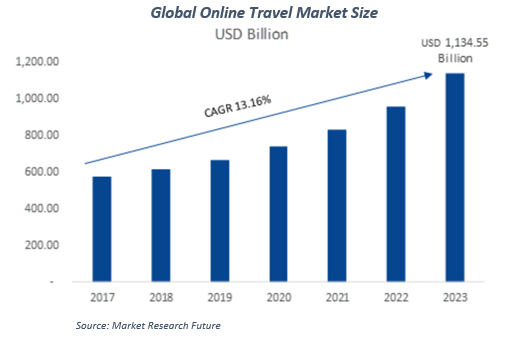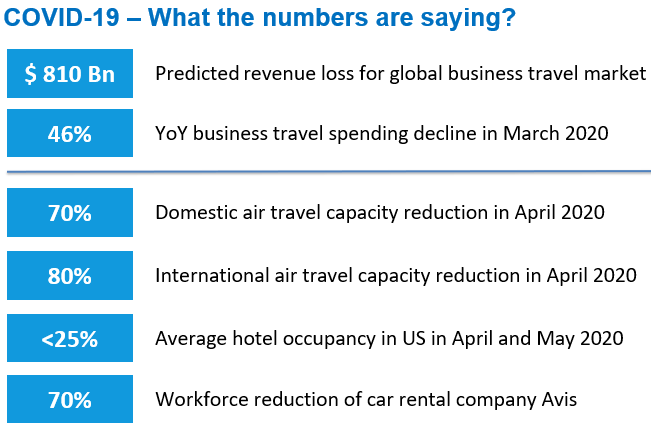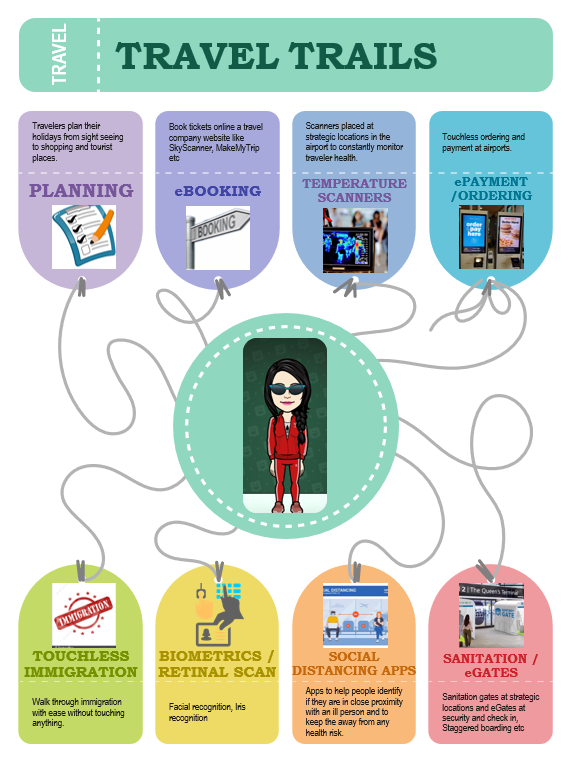Sourcing and Procurement
Resurrecting travel industry - the technology leverage
The COVID-19 pandemic has perhaps had the worst impact on the travel industry worldwide. Although, it is not the first time that the industry has found itself in the middle of a crisis. Each crisis, nevertheless, has nurtured a New Normal for the industry.
However, the mayhem caused by COVID-19 remains unmatched. It has brought the industry to the throes of a technological intervention, which is anticipated to change the face of the entire travel sector. But, the use of technology in the travel industry is not unprecedented by any measure. Over-the-counter booking of tickets gave way to online ticketing; web check-in and e-mail boarding pass in lieu of standing in line at the airport check-in counters; use of analytics to push intelligent recommendations to flyers, are a few of the technological advancements that slid into travel industry alongside the penetration of internet and advent of the digital era. The challenge posed by the COVID-19 crisis has only acted as a catalyst for the travel industry, expediting the process of technology implementation.
In fact, the KLM Royal Dutch Airlines reported an 8% increase in flight operation, as well as, a 5% improvement in their on-time performance in 2018, simply using digital operations. The airline giant used data and analytics to harmonize its processes, manage uncertainties, improve operational performance, and enable quick decision making.
Picturing the post-COVID travel: Ushering Digitization
With the potential to generate one in four of the world’s new jobs, travel industry contributes 10.3% of the global GDP (Gross Domestic Product).
While the global online travel market was expected to grow at a CAGR of 13.6% to reach $1,134.55 billion by 2023, as per a study by Market Research Future, COVID-19 has brought the carefully laid down plans of travel companies, airlines and others to a standstill. The crisis has put nearly 100 million jobs (related to travel) at risk and unveiled the economic dependency of many countries on tourism. Resurrecting the travel industry in the New Normal will be more important than ever to pave the path to economic recovery.

While industry experts are analyzing the setback and building in measures to ensure social distancing mandates and other safety and security modes for passengers and staff, they are also exploring sustainable ways forward assuming that the worse is over. Below is an overview of the estimated loss caused to the travel industry due to the COVID outbreak.

The question now is how can the industry accelerate the implementation of digitization? The simple answer is to put the customer first an identify the experience journeys that can be enhanced by the use of technology. Fortunately, the already existing models of online booking offered by players such as Expedia, Booking.com, TripAdvisor, Thomas Cook, among others, are used widely. To offer additional transparency and ease to passengers, especially with regards to rebooking and refund, startups like RubiQ are using the power of AI to enable airlines to send regular status alerts.
Broadly, there are two areas of focus from a technology standpoint: assuring a secure travel experience – one that ensures safety & protection of passengers and staff; and access to information and predictive technologies to stay on top of disruptions and rapid changes.
Airports world over are increasingly exploring the use of AI, biometrics, and facial recognition technologies for the essential processes, as the focus of travel shifts from luxury service to ensuring touchless & safe experience. Fingerprint technologies and check-ins through document exchange are also set to be replaced with e-gates, biometrics with facial and iris recognition, and digital health passport/ tokens. Transit areas at Changi Airport in Singapore have introduced thermal screeners checking the temperature of the passengers, while cleanliness of public area and restrooms at Hong Kong International Airport is taken care of by intelligent sterilization robots.
Notably, when talking about digitization, breaking information and data silos is paramount. This necessitates the travel industry and travelers to work in tandem to create transparency and enable seamless data flow. For the purpose, the World Economic Forum has launched an initiative “Known Traveler Digital Identity” that unifies a global consortium of individuals, governments, authorities, and the travel industry on a single platform. The platform allows travelers to manage their profiles along with their health credentials related to their immunizations or any other health status, obtain digital attestations for verification purposes, while also enabling authorities to access the verifiable claims of the travelers’ identity to ensure no breach of security. The current times reiterate the need for similar platforms for enabling tracking and analyzing of data to ensure safe travels.

As of now, all the functional airports and travel centers have mandated on-site COVID-19 testing of the passengers. Many in Dubai and Las Vegas have installed PPE (Personal Protective Equipment) vending machines for the passengers. Besides, giants like Apple and Google are simultaneously working on health-screening and tracking tools to help diagnose symptoms or issue an alert if one is in the proximity of the virus.
Similarly, to address the challenge of social distancing at the airports, a Switzerland based Xvois is creating a prototype of a sensor that can help in generating contagion map calculating the flow and distance between people, which will help airline authorities to narrow down the areas where a breach has occurred and monitor it. To prevent crowding of passengers at the luggage check-in area, Holland-based BAGTAG has introduced Electronic Bag Tags (EBT), which has helped several airlines across the world to reduce check-in staff by 50-90% and increase their luggage handling capacity by four-fold at the same time.
Similarly, to address the challenge of social distancing at the airports, a Switzerland based Xvois is creating a prototype of a sensor that can help in generating contagion map calculating the flow and distance between people, which will help airline authorities to narrow down the areas where a breach has occurred and monitor it. To prevent crowding of passengers at the luggage check-in area, Holland-based BAGTAG has introduced Electronic Bag Tags (EBT), which has helped several airlines across the world to reduce check-in staff by 50-90% and increase their luggage handling capacity by four-fold at the same time.









